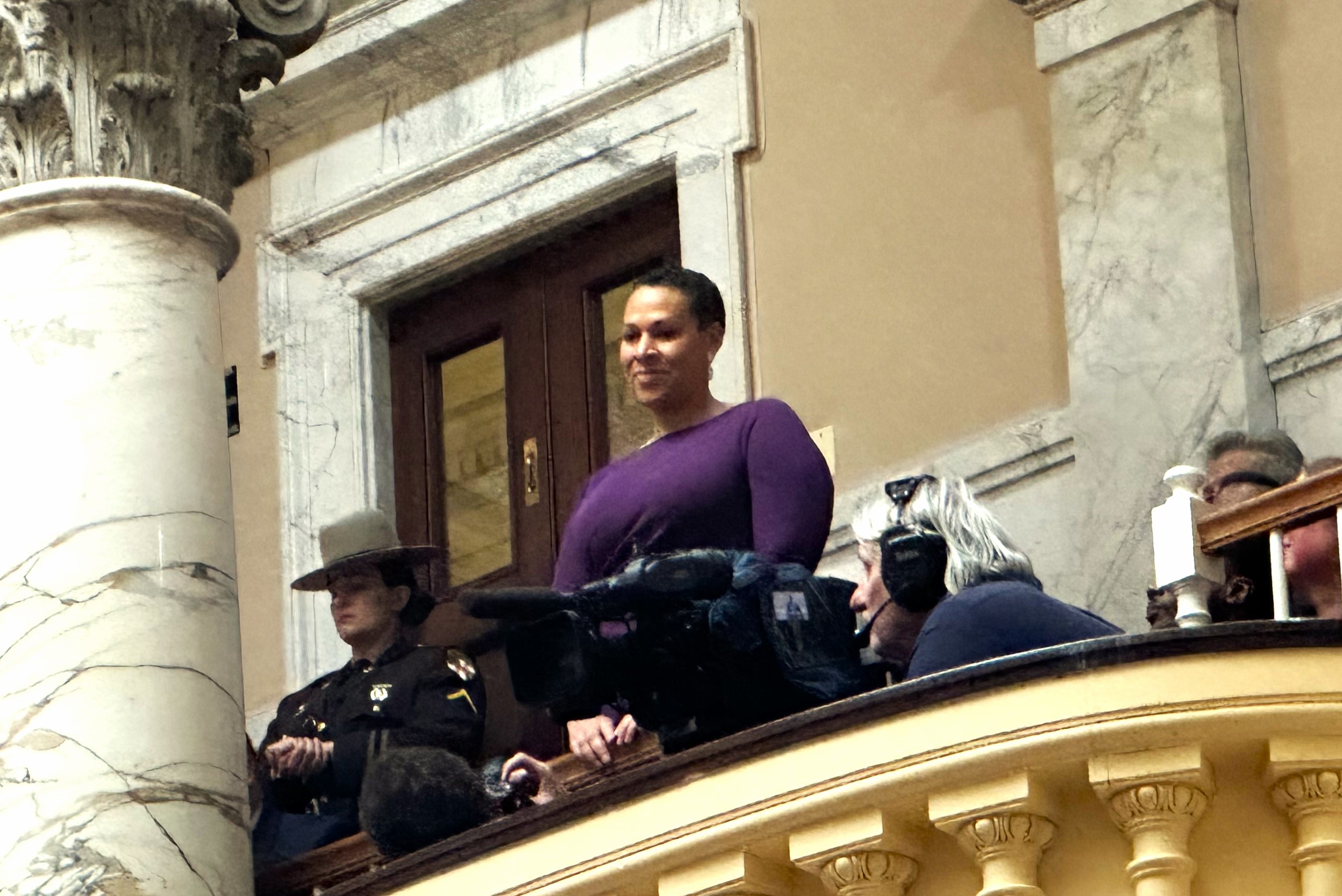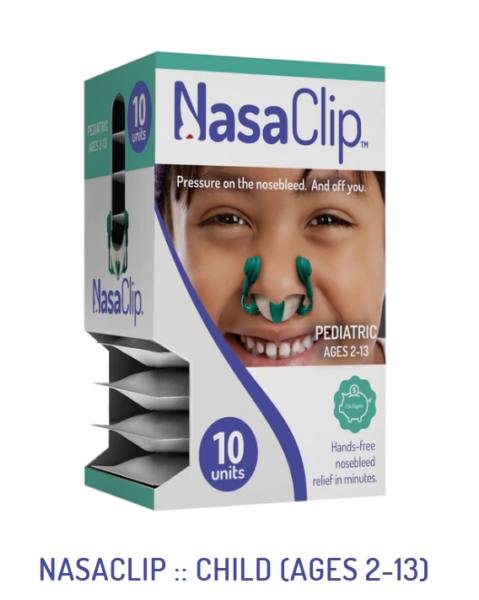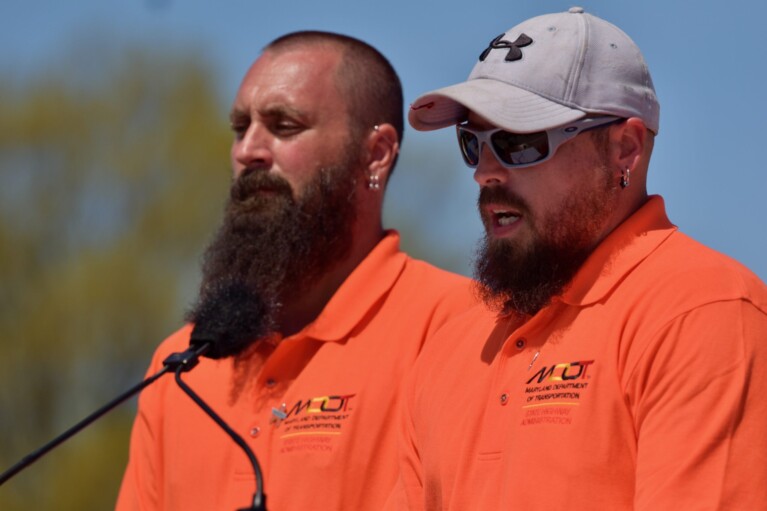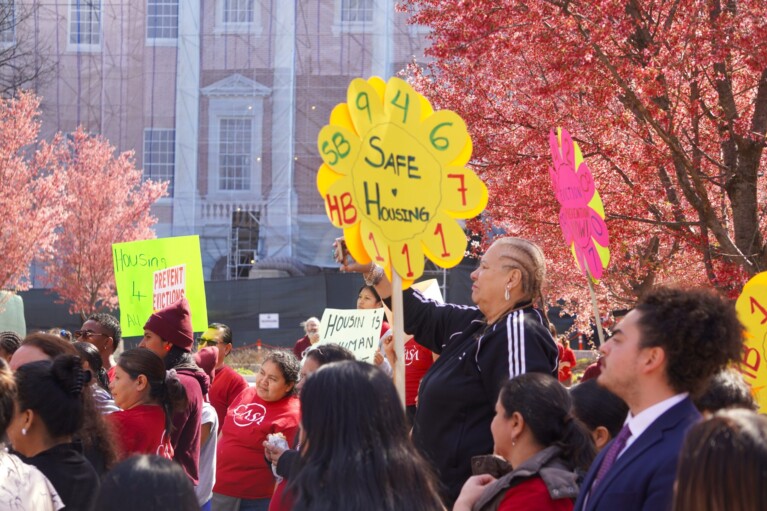Meet the doctor/entrepreneur — and her product — that the governor touted in his speech

Laurel resident Elizabeth Clayborne, an emergency room physician and a mother of two, is attempting to more effectively treat a common frustration for children and elderly adults: nosebleeds.
Despite the relatively low risks associated with nosebleeds, Clayborne said that there are a surprising number of people who go to the emergency room for them.
“We actually see about 500,000 ER visits annually in the U.S. for nosebleeds, which is kind of hard for people to believe,” she said in an interview with Maryland Matters. “They are most common in kids, aged 2 to 10, and in older adults, 55 to 80, especially if they are on blood thinners.”
Clayborne was born and raised in Denver, but did her emergency room residency with George Washington University. She is an adjunct assistant professor of emergency medicine at the University of Maryland School of Medicine — and she is the founder and CEO of NasaClip, which created a hands-free device to stop nosebleeds.
During his State of the State address Wednesday, Gov. Wes Moore (D) hailed Clayborne, who was in the House gallery for his speech, as an example of a Black woman overcoming challenges through Maryland entrepreneurial programs.
She said that people who come into the emergency room for nosebleeds are not usually in need of serious health care, but but some do not properly address their nosebleeds and are unable to stop the bleeding.
“A lot of people will mismanage their nosebleeds, so they’ll put their head backwards instead of forward…They don’t hold constant pressure, which is one of the most challenging issues because you need to hold uninterrupted pressure for 10 to 20 minutes,” she said. “And that’s really hard to do, especially if you are a little kid, or an older adult or panicked because you’re bleeding. And then they can’t stop the bleeding, so they come to the ER.”
The issue of nosebleeds in the emergency room connects to a larger concern about extended wait-times in Maryland’s emergency departments.
Clayborne said that as an ER doctor, she finds that nosebleeds usually are not serious medical concerns and should be fairly simple to address. But low staff numbers in emergency departments and increased patient volume can lead to someone waiting hours before being seen by a medical professional.
“So even if you have a simple issue like a nosebleed, you might be waiting hours, because we can’t get you back,” she said.
That’s what prompted her to develop the product she called NasaClip, which is placed on a patient’s nose to help stanch the bleeding.
“Part of what I like about NasaClip is that it does actually help us start the treatment for a patient immediately,” she said. “Because the device is over-the-counter, it can be applied upfront by a nurse, a technician, a patient themselves…We can begin that treatment and manage them from the waiting room, and sometimes discharge them from the waiting room.”

NasaClip for pediatric patients with nosebleeds. Courtesy of NasaClip website.
In 2023, NasaClip received at total of $750,000 in start-up investments from Maryland’s Technology Development Corporation (TEDCO), an independent entity created by the Maryland General Assembly in 1998 to help support business and economic opportunities across the state.
Clayborne hopes that NasaClip becomes the “Band-Aid of nosebleeds,” meaning that they are readily available in everyday households and stocked in children’s daycare facilities, athletic and sports facilities, school clinics, and hospitals. They currently run an average of $17 per unit, but Clayborne says that the company is developing a lower-cost version.
During his speech, Moore praised Clayborne’s fortitude, dedication to medicine — and her entrepreneurial spirit.
“As a woman of color, she struggled to find capital to get her idea off the ground….Dr. Clayborne doesn’t give up. She was six months pregnant at the height of COVID – and STILL went into work on the front lines at Prince George’s Hospital Center,” Moore said. “She raised enough money to start her business. And today, she is the founder and CEO of her own medical device company that’s focused on helping children and families; And it’s located in Baltimore, Maryland.”
Clayborne said that the intitial start-up support from TEDCO helped get her business off the ground, which was critical, because women and people of color are often overlooked by venture capital companies and other investors.
She said that she was honored to be recognized by the governor, and hopes that it can be a moment of inspiration for other Black women and others living in Maryland to pursue entrepreneurial endeavors.
“I believe that representation matters,” she said. “I’d like to serve as an example for other young women and minorities to pursue their entrepreneurial dreams.”




 Creative Commons Attribution
Creative Commons Attribution